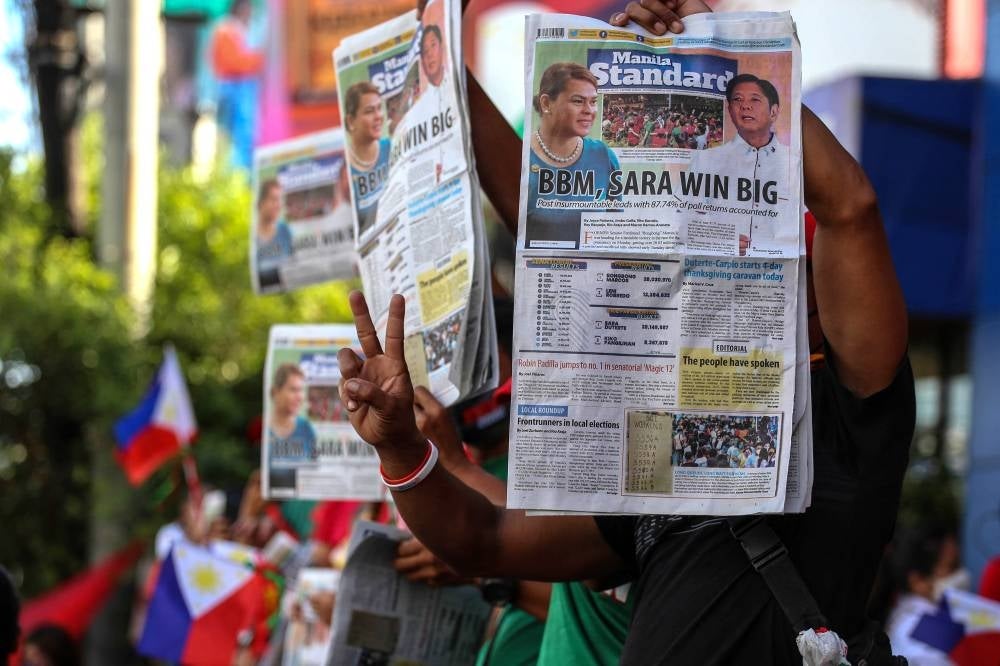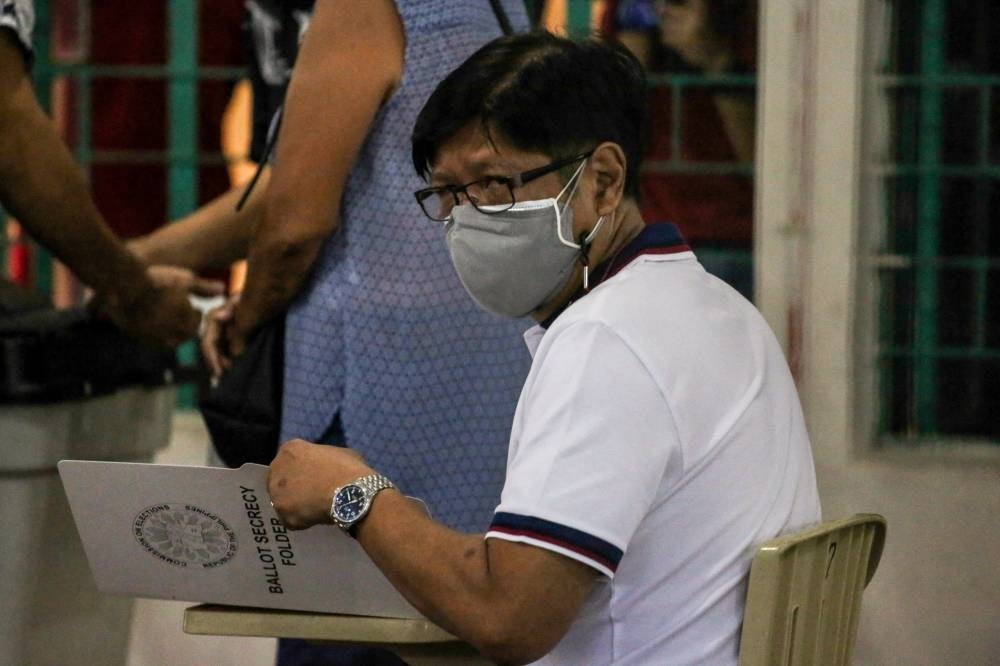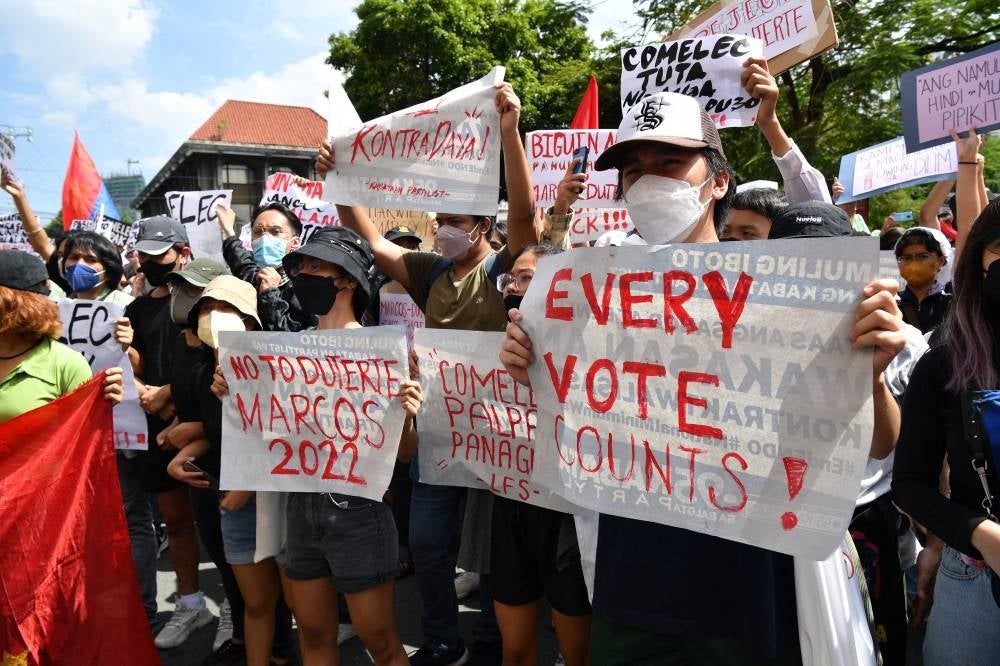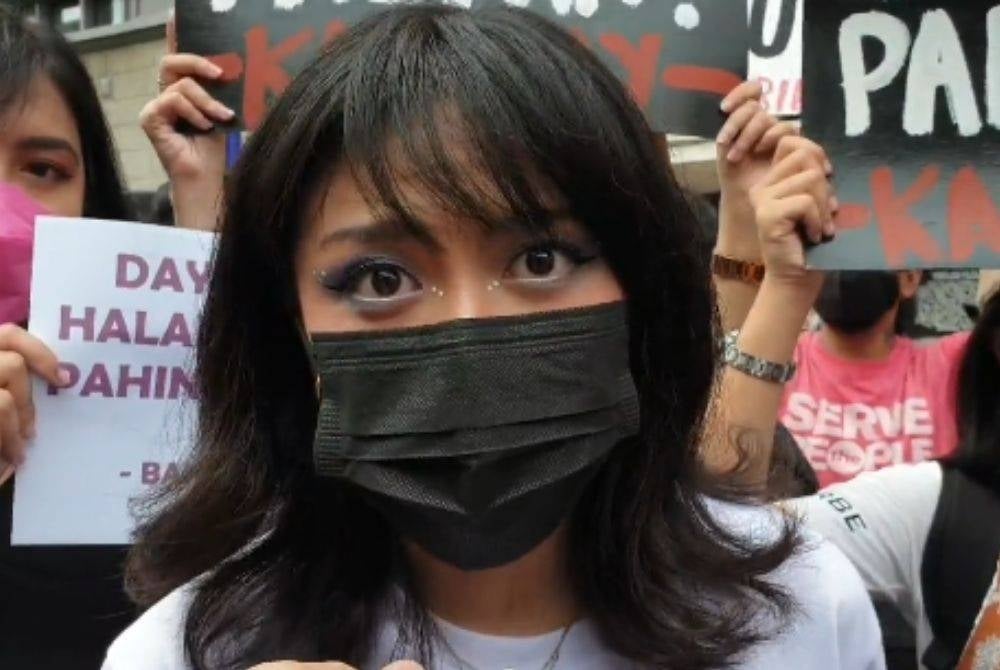Marcos Dynasty Returns: What has happened since "Bongbong's" win?

The namesake son late of Philippine dictator Ferdinand Marcos has won the Philippine's Presidential Election on Monday (May 10), reviving his family's name and legacy after 36 years in exile.
Marcos Jr, better known as "Bongbong", had more than 30.8 millions with more than 97 per cent of the tabulated votes.
His nearest challenger, Vice President and human right champion Leni Robredoo had 14.7 million unofficial votes followed by boxing great Many Pacquiao in third place with 3.5 million.
Marcos Jr's running mate, Sara Duterte, the daughter of the outgoing leader Rodgrido Duterte and mayor of southern Davao city, also had a formidable lead in the separate vice presidential race.
The alliance of two authoritarian leaders had combined the voting power of their families' strongholds in the north and south of the country.
Marcos Jr has vowed to work for the people after his victorious presidential win following on Tuesday, prior to the official announcement.
He told the world to judge him by his presidency and not his family's past.
"Judge me not by my ancestors, but my actions," the 64-year old said in statement via a spokesperson.
Marcos Sr and family members were living in exile in Honolulu, Hawaii before he died in 1989 at the age of 72.
That's when his family was allowed to return to the Philippines and become active in politics again while maintaining the influence and power of their families through wealth and extensive relationships.
Marcos Jr, who shied away from debates and interviews during the campaign period, had also recently praised his father as a genius and statesman but has also been irked by questions about the martial law era.
He, who was a former provincial governor, congressman and senator, has defended the legacy of his father and steadfastly refused to acknowledge and apologise for the massive human rights violations and plunder under his father’s rule.
He has also given few clues about his policy agenda, but was expected to closely follow outgoing President Duterte, who favoured big infrastructure works, close ties with China and strong growth.
Marcos Jr will take office on June 30 for a single, six-year term as leader of Philippines, a nation hit hard by two years of Covid-19 outbreaks and lockdowns and long-troubled by crushing poverty, gaping inequalities, Muslim and communist insurgencies and deep political divisions.
He will likely face demands to prosecute Duterte for thousands of killings during his anti-drug crackdown — deaths already under investigation by the International Criminal Court.

Will he make the same mistake?
Political analyst told Sinar it was unlikely for the newly-minted president to recycle the same dictatorship style like his father which led to the 1986 revolution.
Universiti Utara Malaya lecturer Professor Dr Mohd Aizuddin Mohd Sani said based on the political structure and society in the country it was unlikely able to.
"If we look at the country now, it is very much different that 30 years ago where the relationship between the army and politicians are non-existent, unlike back then - how his father could simply control the whole battalion.
"Besides, the Filipinos are much more aware about democracy what more with brave and independent media channels.
"There has also been an increase in civil society in the Philippines," he told Sinar.
Meanwhile, legal expert from Universiti Kebangsaan Malaysia Professor Madya Dr Salwati Mat Basir said the rise of dictatorship back in Philippines was irrelevant looking at the changes which has taken place in the country.
In fact, she said Marcos Jr was expected to give a different dimension to the country especially in terms of foreign relations which was considered non-existent during Duterte's time.
"We must understand that Marcos Jr is the son of the former Filipino president, he comes from the aristocratic group and used to mixing with foreign leaders.
"There will be an advantage there," she said.

To face a wide array of urgent human rights challenges
In a statement, Amnesty International has called the victorious candidates' unwillingness to address human rights violations in the Philippines "deeply concerning."
"During the campaign period, it seemed that they were deliberately refusing to take a position on past and present violations inclding those committed under martial law in the 1970s and early 1980s, and in the context of the Rodrigo Duterte administration's "war on drugs".
"If confirmed, the Marcos Jr. administration will face a wide array of urgent human rights challenges.
"The new government should make a dramatic course correction and move away from the past six years under Rodrigo Duterte, when authorities increased attacks against political opponents and human rights defenders, cracked down on press freedom, and oversaw widespread and systemic killings in the so-called war on drugs," it said in a statement on Monday.
Human Rights Watch also called for Marcos Jr., if he takes office, to improve the human rights situation in the Philippines.
"Not going to have my president nameed Ferdinand Marcos, again"
Protesters stormed the offices of the Commission on Elections (Comelac) at the Palacio del Gobernador building in Intramuros, Manila on Tuesday following Marcos Jr's presidential win.
They were spurred by a plethora of reports regarding electoral mishaps taking place during yesterday’s polls.
Both local and international media reported various groups convened near the election commission’s office and chanted “Never again to Martial Law,” while decrying Marcos Jr. and running mate, Davao City Mayor Sara Duterte as well as Comelec.
Fully armed police officers barricaded the entrance of the poll body’s headquarters.
Frankie “Kakie” Pangilinan, daughter of Vice President Leni Robredo’s running mate Kiko Pangilinan, was present at the protest.

“They said we have to accept defeat, that we don’t know how to lose,” she told AlterMidya, a local media there.
“I think the truth is that this is not about just this election anymore. The data shows clearly that this election was bought a long, long time ago. And that’s something we will not take sitting down.
"I’m not going to have my president named Ferdinand Marcos again," she said to the camera.
Many Filipinos demanded that the Commission on Elections (Comelec) extend voting hours after reports of voters waiting in line up for hours on election day due to malfunctioning vote-counting machines across polling stations across the country.
Under Comelec guidelines, voting was meant to begin at 6am and end at 7pm on the same day.
Only voters within 30 meters of polling stations were supposed to be allowed to vote after the 7pm cutoff.
Yet, on social media platforms - many Filipinos shared their experiences of waiting as long as 12 hours due to a lack of working vote-counting machines.
One voter said there were no working machines in their precinct at all from 6am to 7pm, giving nobody the opportunity to vote under Comelec’s time guidelines.
The commission had even suggested that those experiencing faulty machines in their precincts leave their ballots with electoral board members, who would feed the ballots into the machines in their absence.
This, would waive their right to view the voting receipt that would confirm their votes.
Many had disagreed with this, arguing that it would leave their ballots prone to tampering and insisted on waiting until working machines had arrived to cast their ballots.











